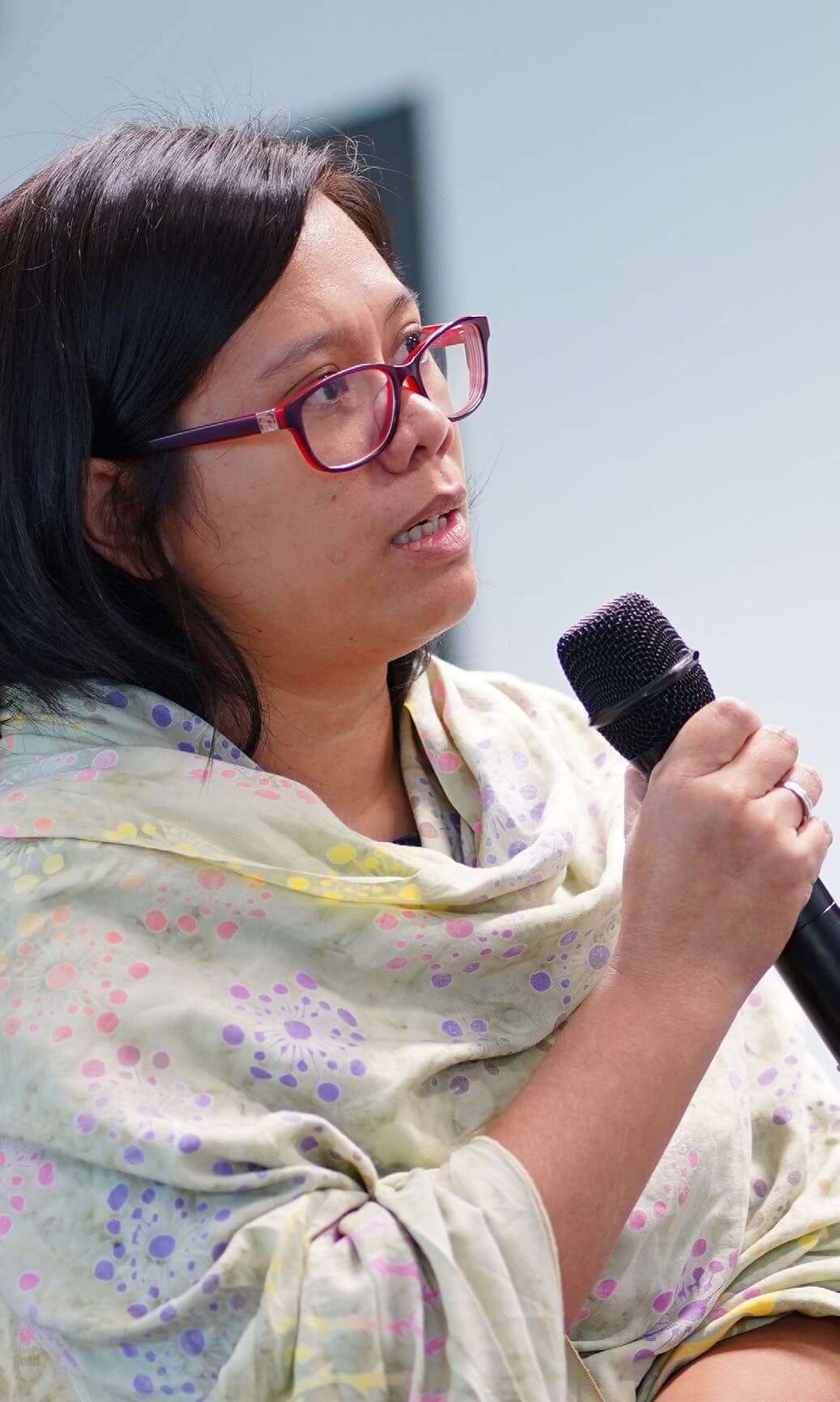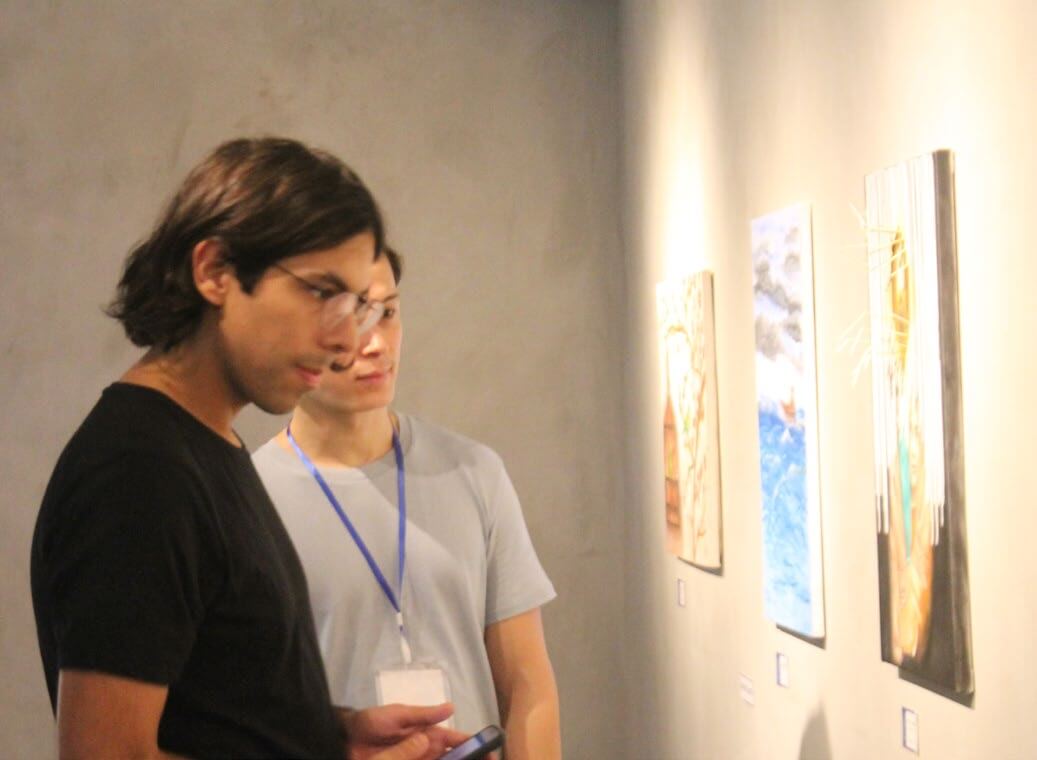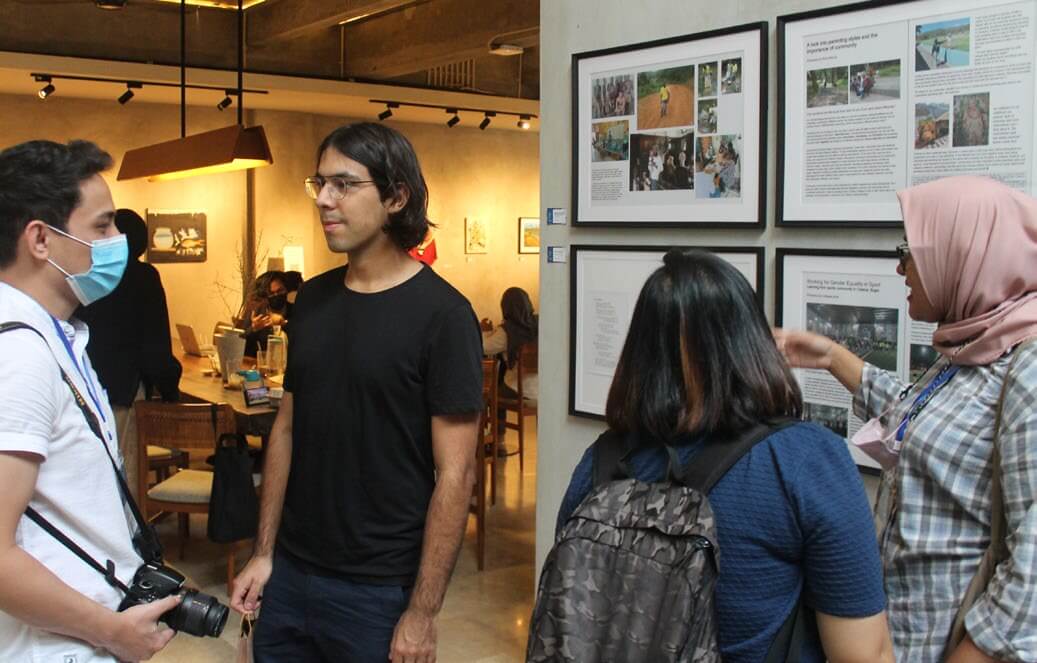
Overview
From 2020 to 2021, Akino Tahir, from the Resilience Development Initiative thinktank, led a project to create a community of experts from different fields to build collaboration and dialogue about urban refugee experiences. The result was an established network, a series of virtual events, and a refugee art exhibition. Through these initiatives, Akino has raised awareness of the problems of current asylum and migrant systems and is advocating for their improvement in Indonesia and beyond.
Challenge
With an increasing global population, competition of resources and climate change impacts, forced displacement is a continued issue in our world. According to the United Nations Refugee Agency (UNHCR), at the end of 2021, more than 89 million people were forced to leave their homes—more than double the number from ten years ago. Accommodating
this population largely falls on low- and middleincome countries (LMIC).
In fact, they hosted 86% of the world’s refugee population in 2021. Cities in LMICs often serve as an in-between for the forcibly displaced, but they are not well-prepared to accommodate the influx of people. This is especially an issue in the absence of a national framework. To better serve the needs of migrants and refugees despite the lack of legal and regulatory framework, cities need innovative, evidence-based solutions from
multidisciplinary perspectives.
"This project is a result of the Royal Academy of Engineering—it goes back to connecting with different disciplines which for me is also a good way to learn about being multidisciplinary and having that approach.”
Akino Tahir, Resilience Development Initiative
Project solution
The project created a community of practice (CoP), which is a network of researchers, practitioners, and observers in forced displacement and urban management in transit countries. The project built a dialogue around forced migration in Southeast Asia considering urban management. This was a topic that had a limited amount of existing research.
By building a network, Akino created a group of interdisciplinary experts who collaborated on solutions surrounding asylum and migration in the region. In total, over 100 people joined the network. Over the course of the year, the project engaged hundreds of different people – many of whom are a part of the Frontiers network—from across not only the Asia Pacific but also North America and the Middle East and North Africa (MENA) region. Akino organised virtual ‘Coffee O’Clock’ sessions which were turned into podcast episodes, held a regional conference bringing together more than 400 people, and hosted a workshop to reimagine urban
refugee management.

Impacts
Though COVID-19 made executing plans difficult, Akino and her collaborators were able to build the CoP, connecting organisations and people from diverse backgrounds relating to forced migration. This included engaging the organisation Skilled Migrant and Refugee Technicians (SMART) to help build the project’s website and collaborating with the Jesuit Refugee Services to carry out role play activities during the workshop, among many others. The network that Akino created also resulted in the creation of the Livelihood Civil Society Coalition which advocates for refugee access to decent livelihoods to the government of the Republic of Indonesia. In a wider sense, the project is contributing to multiple Sustainable Development Goals: Sustainable Cities and Communities (SDG 11), Reduced Inequalities (SDG 10), and Peace, Justice, and Strong Institutions (SDG 16). The CoP bridged the discussion between forced displacement and urban management. Cities are hubs for migration, but discourse on the impact of forced migration is limited, especially within the Asia Pacific Region. Through networking activities, more than 400 people were made aware of the issue. Moreover, the project generated several collaborations that will contribute to future approaches on urban forced displacement.
Lessons Learnt
Akino did encounter challenges along the way. In a general sense, refugees and their experiences are not well known by the public
in Indonesia. This created a gap that the project filled to initiate collaboration with some less aware groups. Akino also underlined the need for flexibility. From different communication methods to technical difficulties, projects must be ready to adapt to changing circumstances. As a result, Akino suggested that project developers involve a wide scope of expertise, implement an effective monitoring system, and always remember to add value in activities. Free events can offer rich discourse, especially with the help of remote collaboration software such as Gather.town and Miro.
The future
Though the first portion of the project was complete, Akino still had big plans. She built on the progress through the next round of Frontiers Champions from 2021 to 2022 with a new project, titled ‘Voicing urban asylum seeker and refugee stories through artistic expression.’ Through this, she expanded the CoP and created the Let’s Walk My Journey art exhibition for refugees to express their stories with the network. Akino also organised a series of talk shows for the exhibition participants to discuss art and their experiences. In this way, they will elevate refugee voices among the many members of the network to build dialogue. Akino aims to continue collaboration with network members, some of whom are already producing projects together.

Interested in participating in the Frontiers programme?
Visit our Symposia pages for more information including eligibility. Follow us @RAEngGlobal
